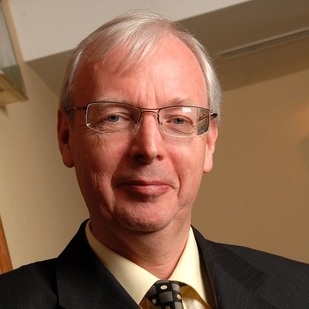Medical schools warn students: ‘Fail and become GPs’

Exclusive Medical school deans are telling undergraduates that general practice is a ‘second-class’ career option that students will fall into if they ‘fail’ their studies, GP leaders have said.
A series of reports have suggested that attempts to change what the RCGP referred to as a ‘toxic’ culture in medical school are not yet working, with students being offered ‘unacceptable’ and ‘damaging’ accounts of the value of general practice as a profession.
It comes amid a GP trainee shortage, with Pulse revealing earlier this year that the number of applications for the first batch of GP training schemes had fallen for the second year in a row, and last year 12% of training places were unfilled nationally, which has led to NHS England developing a ten-point strategy to increase GP numbers.
The Medical Schools Council told Pulse that it was working with the RCGP on a scheme to promote general practice in its schools, and that its members had made a ‘commitment’ to articulate the importance of general practice to students
However, Sir John Oldham, chair of the Independent Commission on Whole-Person Care and a GP in Glossop, wrote on Twitter that a medical school dean told a new intake of students last September that ‘We work you hard because we don’t want you to fail and become GPs’.
Similarly, GPC deputy chair Dr Richard Vautrey told delegates the Welsh LMCs conference last month that the RCGP council had heard one account where students were told ‘50% of you are going to be GPs, and if you don’t work hard enough that is where you will end up’.
GPs on Twitter responded to Sir John’s claims, with Sheffield GP trainer Dr Alan Shirley agreeing that this was a wider problem than one or two reported cases, writing: ‘More than one person [has said it]. But unusual for it to be said so overtly nowadays? Needs challenge!’
RCGP chair Maureen Baker told delegates at the RCGP conference last year that the college had had meetings with medical school heads to discuss the ‘toxic anti-GP’ culture, but these latest cases appear to have continued into the current year’s student intake.
Related stories
Revealed: 6% drop in GP training applications this year
Dr Maureen Baker: Medical schools have a responsibility to ‘big up’ general practice
Sir John told Pulse that the example he had heard took place in September, at the start of the academic year.
He said: ‘While this was an overt example, my worry is that in more subtle ways the next generation of doctors are getting messages that general practice is a second class element of the profession.’
He added: ‘I’m not in medical education, but I know that this is not isolated and should you look at the percentage of graduates from different medical schools that go into general practice, there’s variation.’
Part of NHS England’s plan to boost recruitment involves an advertising campaign, including a letter to newly qualified doctors, setting out the benefits of a general practice career.
Dr Vautrey told Pulse that the NHS must begin talking up general practice and encouraging it as a career choice for the best and brightest students.
He said: ‘It is completely unacceptable for anyone in a leadership positions within medical schools to express views like this which can be very damaging and it is something all medical schools must seriously and urgently address.’
A spokesperson for the Medical Schools Council told Pulse: ‘The Medical Schools Council is committed to producing graduates who are passionate for all aspects of medical care. The importance of GPs to the current and future NHS is strongly felt by the Council and ongoing discussion with the RCGP on how to address this has resulted in plans to work together in promoting general practice within medical schools.’
‘This planning is in its preliminary stages but the commitment is there from the medical schools to articulate the importance of general practice and other less popular specialties to their students, and the Medical Schools Council is keen to facilitate this.’
If you have heard of any examples of general practice being devalued in medical schools, please contact us at [email protected] and we will forward concerns to the Medical Schools Council
Pulse July survey
Take our July 2025 survey to potentially win £1.000 worth of tokens











